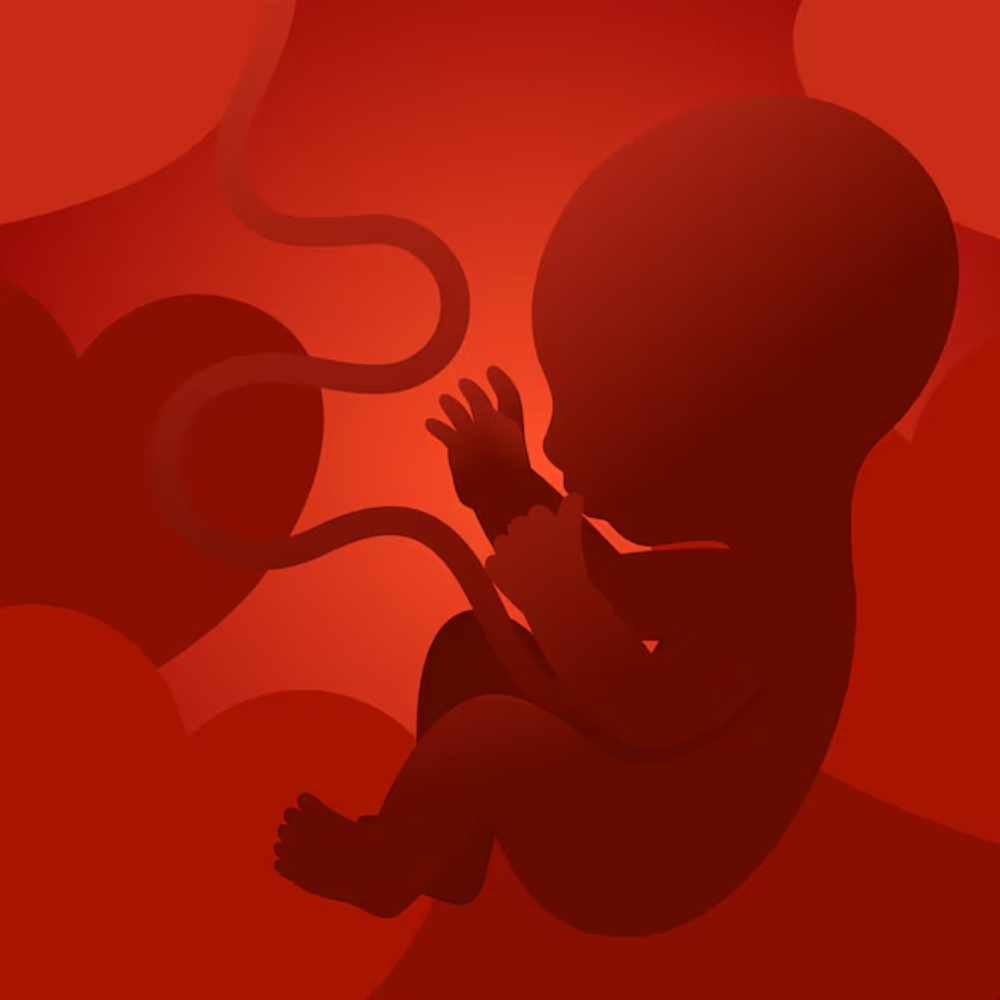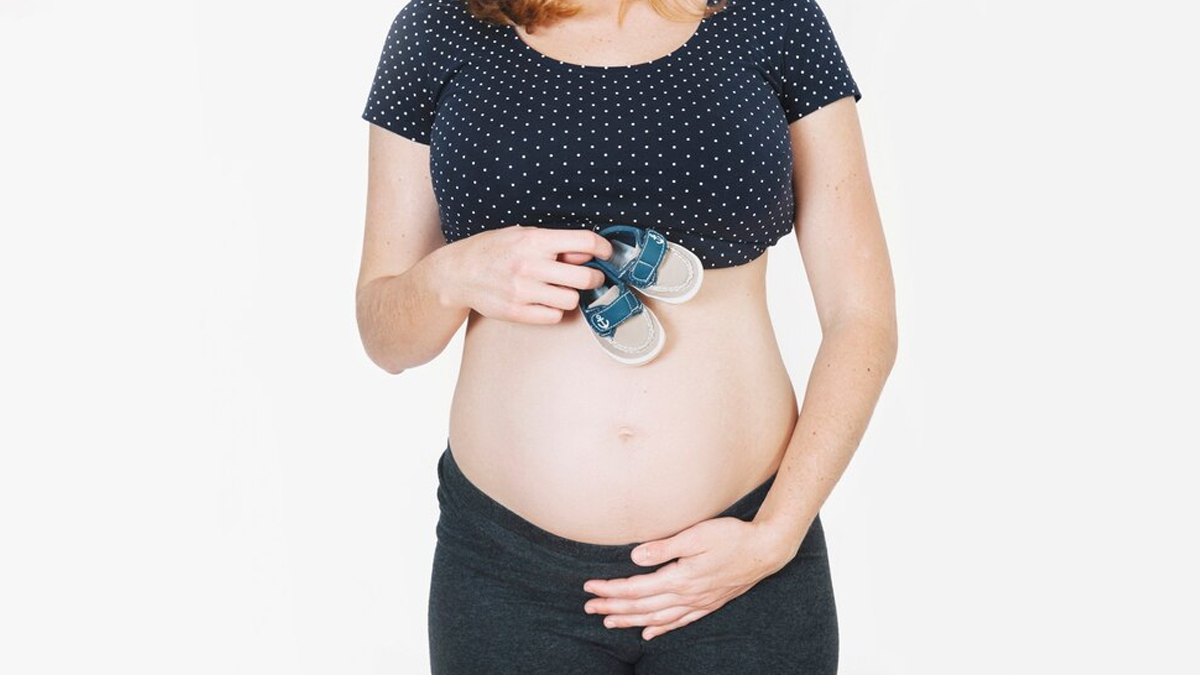
Pregnancy is often associated with a growing baby bump, but some women experience little to no visible belly expansion even in the later stages. This phenomenon, sometimes called a "cryptic pregnancy" or a "hidden pregnancy," challenges the common perception that all pregnant women develop a noticeable baby bump. But how is this possible?
Table of Content:-
To understand this, OnlyMyHealth team interacted with Dr Pratibha Singhal, Director - Department of Gynaecology and Obstetrics, Cloudnine Group of Hospitals, Noida.
Myth vs Fact: Can You Be Pregnant Without a Baby Bump?
Myth: Every Pregnant Woman Develops a Noticeable Bump
One of the biggest misconceptions is that all pregnant women will have a visibly growing belly. While most women experience a gradual enlargement of the abdomen as the baby grows, some may not show signs of pregnancy until much later, or in rare cases, not at all.
Fact: Some Women Can Be Pregnant Without a Baby Bump
When asked if a woman can be pregnant without a baby bump showing, Dr Singhal said, “Yes, it is possible for a woman to be pregnant without developing a noticeable baby bump. Several factors can contribute to this, ranging from body type and muscle tone to medical conditions that may delay the outward signs of pregnancy.”
According to Dr Singhal, “Pregnancy is often associated with a growing baby bump, but some women experience little to no visible belly expansion even in the later stages. This can happen due to factors like strong abdominal muscles, the baby’s position, or the shape of the uterus.”
Reasons Why a Baby Bump May Not Be Visible

Strong Abdominal Muscles
Women with strong core muscles may not develop a prominent baby bump. Dr Singhal says, “Their toned abdominal wall can keep the uterus closer to the spine rather than pushing outward, making the pregnancy less noticeable.”
Position of the Baby
The baby's position in the uterus can affect how the bump appears. If the baby is positioned towards the back rather than the front, the belly may not expand outward as much.
Retroverted Uterus
According to Dr Singhal, “Some women have a retroverted uterus, meaning their uterus tilts backward toward the spine instead of forward. This positioning can delay or minimise the appearance of a baby bump.”
First-Time Pregnancy vs Subsequent Pregnancies
First-time mothers may show later than those who have had previous pregnancies because their abdominal muscles and uterine walls are tighter. Women who have given birth before often show earlier due to muscle stretching from past pregnancies.
Being Overweight or Having a Larger Body Frame
Women with a larger body frame or extra abdominal fat may not notice a distinct baby bump. The pregnancy may be concealed within existing body weight, making the belly expansion less noticeable.
Medical Conditions Affecting Pregnancy Visibility

Certain medical conditions can lead to hidden pregnancies, such as:
- Placenta Previa: When the placenta covers the cervix, it may restrict outward belly growth.
- Amniotic Fluid Levels: Studies show that low levels of amniotic fluid (oligohydramnios) can make the uterus appear smaller than expected.
- Hormonal Imbalances: Conditions like Polycystic Ovary Syndrome (PCOS) can cause irregular symptoms that may mask pregnancy.
What Is a Cryptic Pregnancy?
According to WebMD, a cryptic pregnancy refers to a pregnancy that goes undetected for several months or even until labour. Women experiencing cryptic pregnancies often have irregular periods, minimal weight gain, and little to no pregnancy symptoms like nausea or breast tenderness.
Signs of a Cryptic Pregnancy
Even if a woman does not have a visible bump, she may still experience:
- Fatigue
- Unexplained weight gain
- Mild fetal movements (which may be mistaken for gas or muscle twitches)
- Mood swings
- Occasional nausea
Is It Dangerous Not to Have a Baby Bump?

Not having a noticeable baby bump does not always indicate a problem. However, if a pregnancy goes undetected, the mother may miss essential prenatal care, which increases risks such as:
- Poor fetal development due to lack of proper nutrition.
- Missed health screenings for gestational diabetes, high blood pressure, or infections.
- Preterm labour due to undiagnosed complications.
Dr Pratibha Singhal advises: “Regular check-ups by an obstetrician are important to assess the baby’s growth. Growth retardation can be missed in cases where the bump is not prominent, so proper monitoring is essential.”
Also read: Why Indian Women Are Facing More High-Risk Pregnancies Than Ever? Doctor Explains
The Role of Body Type in Pregnancy Visibility

Height and Body Proportions
Taller women may not show a noticeable baby bump as early as shorter women. “Tall women have more up-and-down room between the pubic bone and top of the abdomen than petite mothers-to-be, which allows pregnancy weight to distribute more evenly. Because they tend to have a larger midsection, taller women tend to stick out less and show later than shorter women,” explains Dr Singhal.
Carrying Low vs High
Shorter women or those with a smaller torso may carry lower and around their middle, as there is less room for the baby to grow upwards. This can make pregnancy more noticeable sooner than in taller women.
Does Baby Bump Size Indicate Baby’s Gender?
There’s a popular myth that the shape and size of a pregnant belly can predict whether the baby is a boy or a girl. However, there is no scientific basis for this belief. “There’s no definitive way to reveal the baby’s gender based on pregnant belly shapes. You can use these myths for fun, but don’t make any serious decisions based on them. Irrespective of whether it’s a girl or a boy, your nutritional needs are the same. So, focus on eating healthy and staying fit,” advises Dr Singhal.
Conclusion
Not every pregnant woman develops a noticeable baby bump, and several factors, including body type, muscle tone, and medical conditions, can influence how pregnancy presents physically. While a cryptic pregnancy is rare, it is crucial for all expectant mothers to undergo regular check-ups to monitor the baby’s health. If you suspect you might be pregnant despite a lack of visible signs, it is always best to consult a doctor for confirmation and guidance.
Also watch this video
How we keep this article up to date:
We work with experts and keep a close eye on the latest in health and wellness. Whenever there is a new research or helpful information, we update our articles with accurate and useful advice.
Current Version